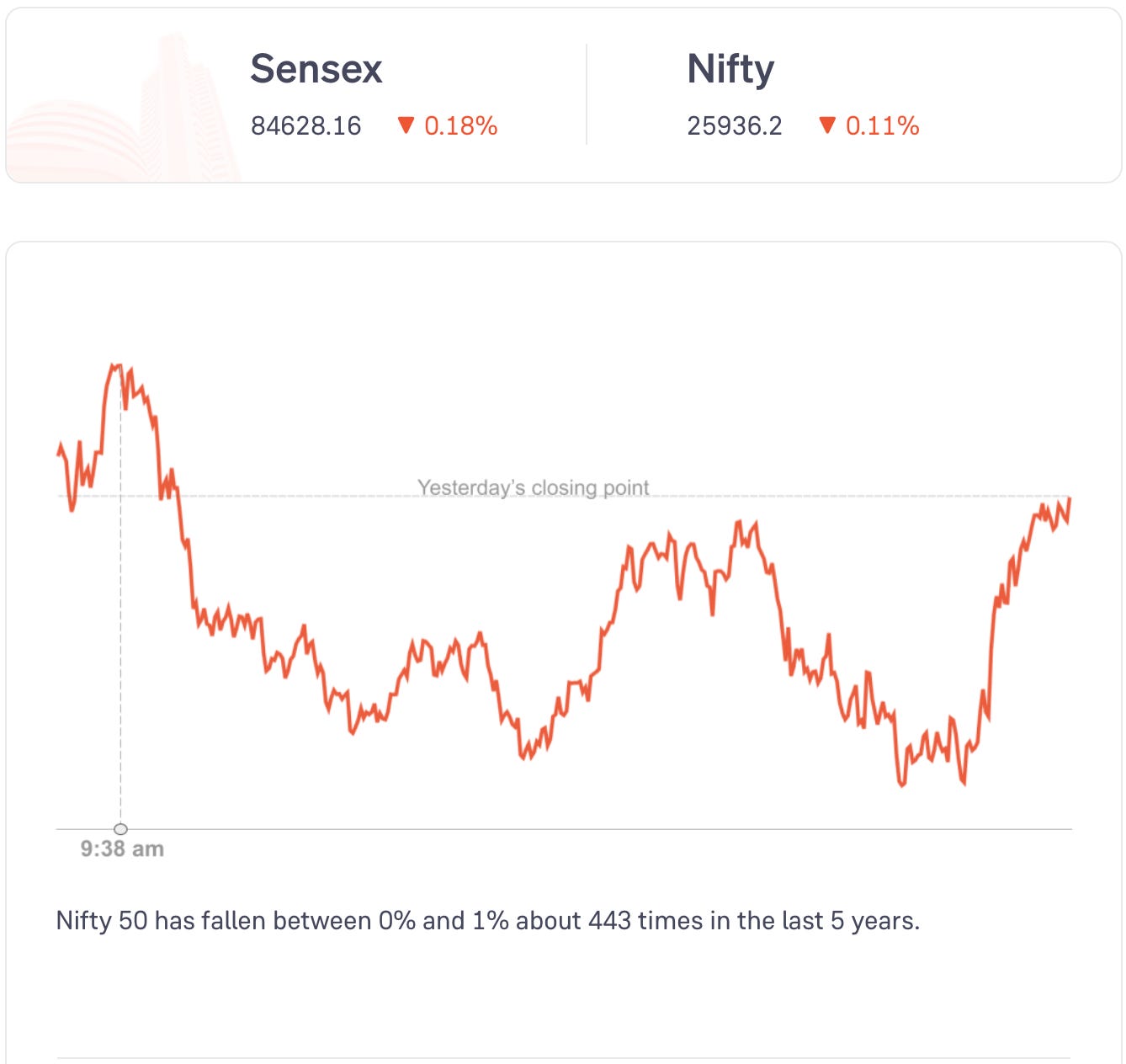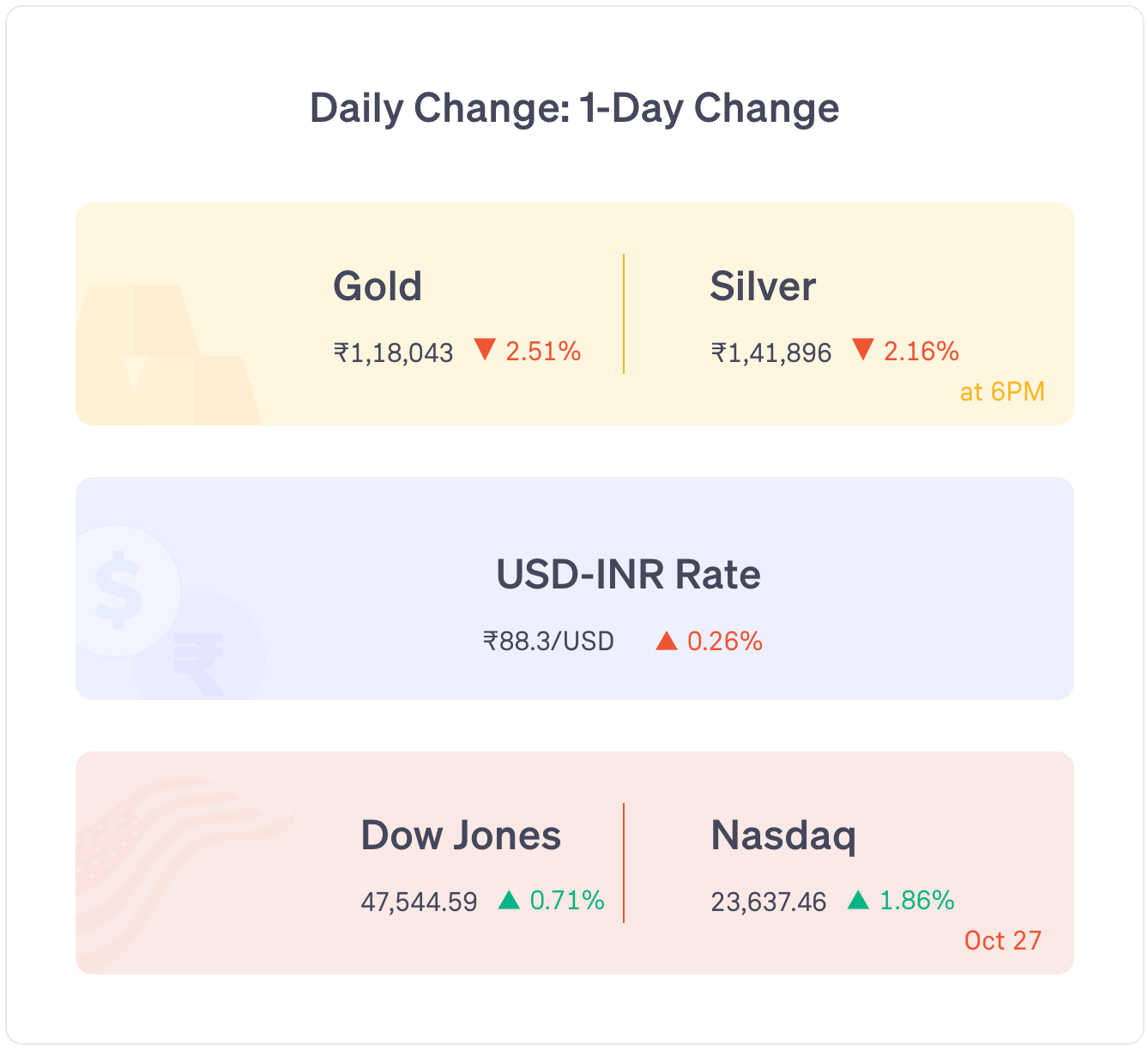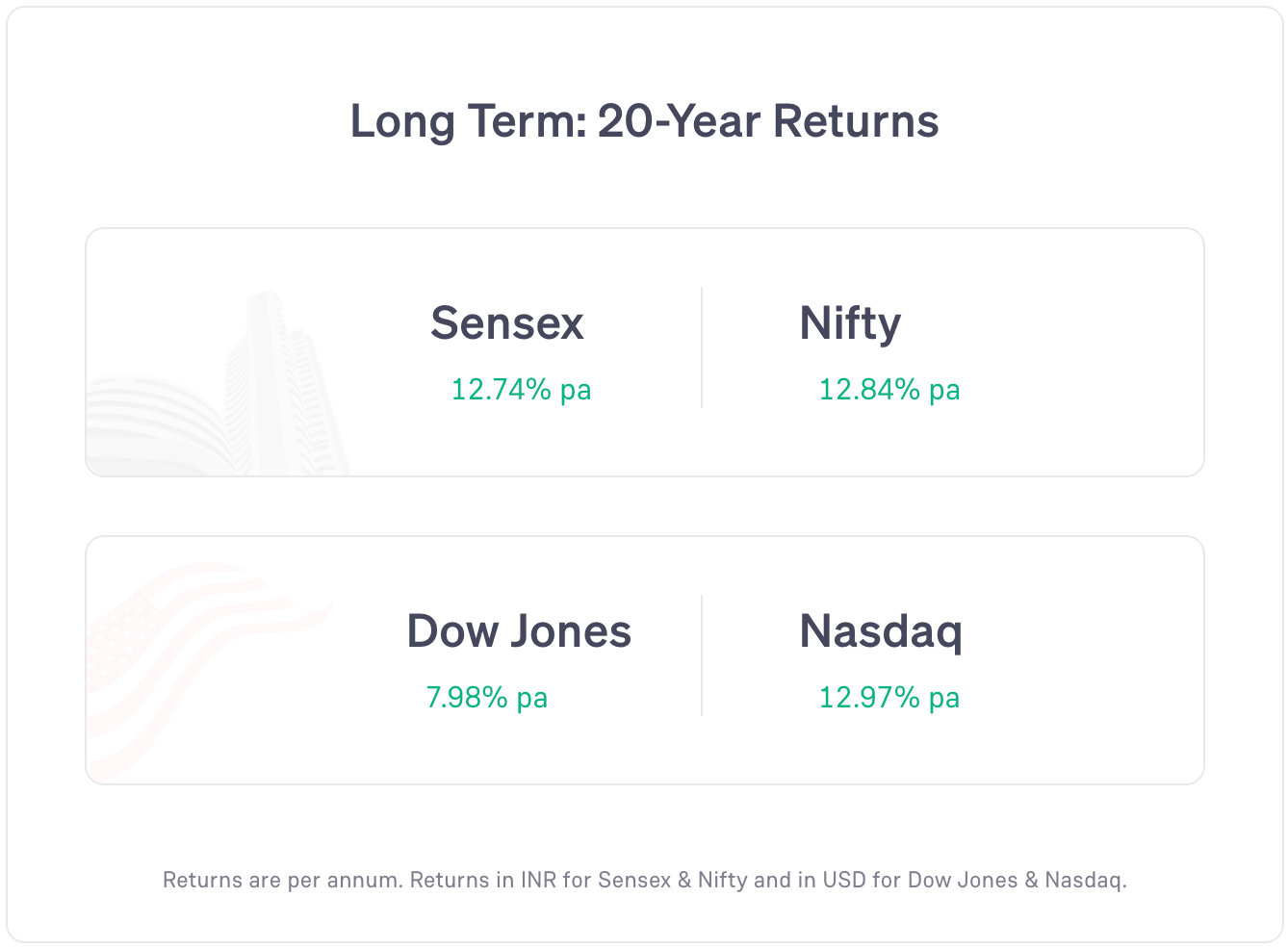Govt approves 8th pay commission, Shree Cement profits up 304%, & more — Groww Digest
Tuesday, 28 October 2025
Markets opened above yesterday’s closing point.
Nifty 50 was volatile throughout the day and closed flat.
Metal stocks and PSU bank stocks rose the most today. Realty stocks and IT stocks fell the most.
Global markets: US markets rose. Asian markets and most European markets fell (as of 6 pm IST).
News
The central government approved the 8th Central Pay Commission to review pay and benefits for central government employees and pensioners within 18 months.
India’s industrial production rose 4% year-on-year in Sept (vs 4% in Aug). Manufacturing grew 4.8% (vs 3.8% in Aug).
The central government approved the nutrient-based subsidy rates for fertilizers for the Rabi 2025-26 season with an approximate cost of Rs 37,952.29 crore.
Stocks Updates
Shree Cement: net profits rose 304% year-on-year to Rs 309 crore in the July-Sept quarter. Dividend declared: Rs 80 per share; record date: 3 Nov.
TVS Motor: net profit rose 42% year-on-year to Rs 795.48 crore in the July-Sept quarter.
Adani Green: net profit fell 25% year-on-year to Rs 644 crore in the July-Sept quarter.
Tata Capital: net profits rose 2% year-on-year to Rs 1,097 crore in the July-Sept quarter.
Jindal Steel: net profits rose 26% year-on-year to Rs 638 crore in the July-Sept quarter.
BPCL: signed MoUs with OIL, NRL, and FACT for a Rs 1 lakh crore refinery, Rs 3,500 crore pipeline, and biogas projects.
L&T: received significant orders in the range of Rs 1,000 crore to Rs 2,500 crore in the domestic and international market. It includes projects in the US, Mexico, Brazil, Saudi Arabia, and India, for refinery, petrochemical, fertilizer, and nuclear equipment.
HAL: signed an MoU with Russia’s UAC to manufacture SJ-100 passenger aircraft in India, making it the country’s first full-scale civilian aircraft production.
Word of the Day
Depreciation
It is the gradual decrease in the value of an asset over time
This could be due to wear and tear, usage, or ageing.
Example: if a company buys a machine for Rs 10 lakh, its value won’t stay the same after a few years. The value will reduce as the machine is used. That reduction in value is called depreciation.
Accounting for depreciation helps companies spread the cost of an asset over its useful life instead of recording it all at once.
Capital-intensive sectors have high depreciation costs because they invest heavily in physical assets like machinery, equipment, and infrastructure.
6 Day Course
Theme: red flags while choosing stocks
Day 2: Tuesday
A declining revenue is not good news.
But that however is not a red flag. Revenues can decline due to various reasons that has nothing to do with the company.
But a consistent decline in revenues — quarter after quarter, year after year, can signal something wrong.
Investors must investigate why the decline is occurring.
Similarly, a more subtle red flag is reducing profit margins.
If a company is making less profit for the same revenue consistently, something might be wrong.
If a competitor is causing the above two, then investors must ask themselves if the company has the ability to fight the increased competition.
If it is because of internal issues, it is an even bigger red flag.
If it is because of changing customer preferences, it is also a red flag — as something like that cannot be solved by improving the internal functioning of the company.
Features Question
“How can I invest in chinese market?”As an Indian retail investor, one of the easiest ways to invest in China is via mutual funds.
Some ETFs and mutual funds are designed for investing in Chinese stocks.
These mutual funds are based in India and are treated like any Indian funds.
Taxation and all other matters are handled in India.
If your net worth is high enough to qualify for Portfolio Management Services (PMS) investment, you can explore China-focused PMS.
There are very few options in India that directly let you invest only in China. You are more likely to find funds that invest in China among others.
Example, an emerging markets fund might invest in Chinese ETFs, Vietnamese ETFs, etc.
Look for these keywords when analysing these international funds holdings: Hang Seng index ETFs or China FoFs.
If you are interested in directly buying Chinese company’s stocks, you will have to open an account with a global stockbroker.
Every country’s indices and stocks work differently. They do not all behave the same.
It is necessary to research the country’s stocks, ETFs, and mutual funds properly before deciding to invest in them.
Did you like this edition?
Leave a feedback here!





